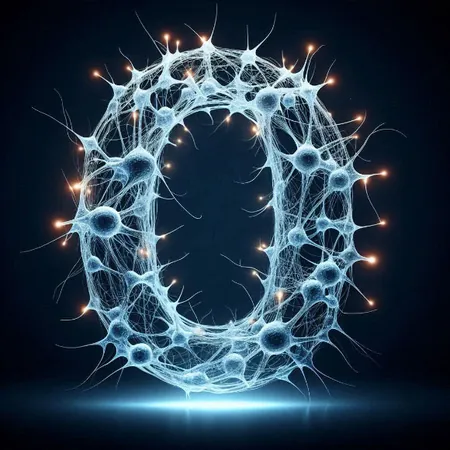
Groundbreaking Study Reveals How Our Brains Understand the Concept of Zero!
2024-09-25
Groundbreaking Study Reveals How Our Brains Understand the Concept of Zero!
In an extraordinary advancement for neuroscience, recent research from institutions including the University Hospital Bonn and the University of Tübingen has illuminated the enigmatic role of the number zero in our cognitive processes. Zero, a fundamental component of mathematics, is pivotal for constructing a sophisticated number theory yet remains one of the least understood numbers regarding its neuronal representation in the human brain.
Lead by Professor Florian Mormann, the team of neuroscientists conducted pioneering experiments by recording the activity of single neurons in neurosurgical patients. Participants were exposed to both symbolic numbers (like Arabic numerals) and non-symbolic representations (such as sets of dots, including an empty set). The results were astounding.
“Unlike numbers such as one, two, or three, which correlate with countable quantities, zero signifies the absence of something countable but still possesses intrinsic numerical value,” noted Professor Mormann. This distinction sets zero apart from other numerals and showcases its unique placement in human cognition.
Interestingly, the notion of zero is a relatively recent development in human history, emerging only in the last two millennia. Children typically grasp the concept of zero around the age of six, indicating its complexity and the brain's gradual adaptation to abstract numerical ideas.
In their study, scientists employed hair-thin microelectrodes inserted into the temporal lobes of neurosurgical patients to monitor their neural responses to various numerical values, ranging from zero to nine. Remarkably, they discovered neurons responsive exclusively to either the numeral zero or the empty set, but never both. “This suggests a nuanced neural encoding for the concept of zero,” explained Dr. Esther Kutter, highlighting the brain’s selective processing of this elusive number.
Their findings uncovered an intriguing phenomenon: while these neurons showed a diminished response to the neighboring number one, the encoding of the empty set differed distinctly from that of other numerals, signaling a unique representation challenge in the brain. Professor Andreas Nieder elaborated, “At the neuronal level, zero is not simply a void; it’s integrated with other countable values at the lower end of the numerical scale.”
This study not only deepens our understanding of how zero is represented in our brains but also prompts important implications for education and cognitive development. Recognizing that the empty set takes longer for individuals to process compared to small numbers could inform teaching strategies and the timing for introducing mathematical concepts to children.
The research findings have been detailed in the journal Current Biology, promising to pave the way for future explorations into the intricate world of numerical cognition and representation.
As we delve deeper into understanding the brain’s handling of complex ideas like zero, one question remains: could mastering zero unlock new pathways to enhance mathematical education? This groundbreaking research might just have the answer!


 Brasil (PT)
Brasil (PT)
 Canada (EN)
Canada (EN)
 Chile (ES)
Chile (ES)
 España (ES)
España (ES)
 France (FR)
France (FR)
 Hong Kong (EN)
Hong Kong (EN)
 Italia (IT)
Italia (IT)
 日本 (JA)
日本 (JA)
 Magyarország (HU)
Magyarország (HU)
 Norge (NO)
Norge (NO)
 Polska (PL)
Polska (PL)
 Schweiz (DE)
Schweiz (DE)
 Singapore (EN)
Singapore (EN)
 Sverige (SV)
Sverige (SV)
 Suomi (FI)
Suomi (FI)
 Türkiye (TR)
Türkiye (TR)